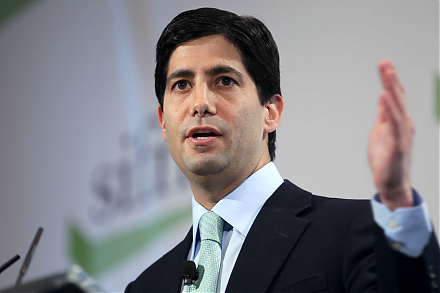

2019-07-07 18:36:00 Sun ET
federal reserve monetary policy treasury dollar employment inflation interest rate exchange rate macrofinance recession systemic risk economic growth central bank fomc greenback forward guidance euro capital global financial cycle credit cycle yield curve
The Chinese central bank has to circumvent offshore imports-driven inflation due to Renminbi currency misalignment. Even though China keeps substantial foreign reserves in U.S. government bonds, traders may still speculate whether the People Bank of China (PBOC) can fix the Dollar-Renminbi exchange rate below 7.0x. This current exchange rate has substantially declined about 9.3% since April 2018 and now hovers in the stable range of 6.89x-6.92x. PBOC Governor Yi Gang indicates that there is no asymmetric red line for the Sino-American exchange rate. However, Chinese economic policymakers may be hesitant to let their currency depreciate past RMB$7-to-USD$1.
Any expectations of short-term currency misalignment can spur capital flight out of the Chinese economy. Chinese public corporations that list abroad have to make cash dividend payments in June each year; so foreign exchange order flows reveal substantive short-term pressure for these Chinese public firms to sell the offshore Renminbi. As China achieves a near-zero current account surplus in mid-2019, the Renminbi faces downward pressure. Renminbi depreciation has long been a major source of tremendous competitive advantage for China. It is important for the Sino-U.S. trade negotiations to level the playing field with respect to potential Renminbi currency misalignment.
If any of our AYA Analytica financial health memos (FHM), blog posts, ebooks, newsletters, and notifications etc, or any other form of online content curation, involves potential copyright concerns, please feel free to contact us at service@ayafintech.network so that we can remove relevant content in response to any such request within a reasonable time frame.
2022-02-05 09:26:00 Saturday ET

Modern themes and insights in behavioral finance Shiller, R.J. (2003). From efficient markets theory to behavioral finance. Journal of Economi
2025-06-20 08:27:00 Friday ET

President Trump poses new threats to Fed Chair monetary policy independence again. We describe, discuss, and delve into the mainstream reasons, conc
2019-06-09 11:29:00 Sunday ET

St Louis Federal Reserve President James Bullard indicates that his ideal baseline scenario remains a mutually beneficial China-U.S. trade deal. Bullard ind
2018-04-02 07:33:00 Monday ET

China President Xi JinPing tries to ease trade tension between America and China in his presidential address at the annual Boao forum. In his vulnerable att
2026-02-02 12:30:00 Monday ET

With U.S. fintech patent approval, accreditation, and protection for 20 years, our proprietary alpha investment model outperforms most stock market indexes
2018-03-25 08:39:00 Sunday ET

President Trump imposes punitive tariffs on $60 billion Chinese imports in a brand-new trade war as China hits back with retaliatory tariffs on $3 billion U